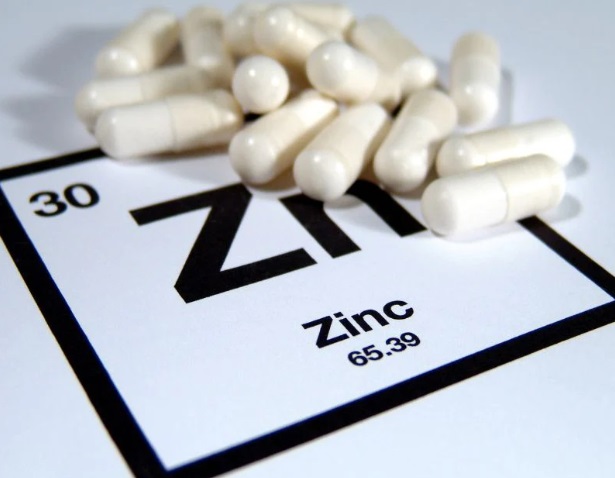Nikhil Prasad Fact checked by:Thailand Medical News Team Aug 01, 2025 6 months, 3 weeks, 3 days, 1 hour, 7 minutes ago
Medical News: In a promising scientific breakthrough, researchers have discovered that zinc ions can effectively block the influenza virus from attaching to human cells—an action that takes place in just one minute and lasts for at least 24 hours. The study, conducted by scientists from Princeton University in the United States and Ascend Performance Materials in Texas, offers fresh insight into how zinc-infused personal protective equipment (PPE) could help stop flu infections before they begin.
 Zinc Destroys Flu Virus Binding Power in Just One Minute
Zinc Destroys Flu Virus Binding Power in Just One Minute
Influenza A viruses are notorious for causing seasonal flu outbreaks and occasional pandemics. Despite yearly vaccines and antiviral drugs, the virus still sickens millions and kills hundreds of thousands globally each year. But a recent laboratory study has shown that zinc ions have the power to disrupt the virus’s ability to bind to cells, which is the crucial first step in infection. This
Medical News report unpacks the study's significance and how it could influence the future of antiviral protection.
How Zinc Blocks the Virus
The influenza virus infects cells by using a surface protein called hemagglutinin (HA), which binds to sialic acid receptors found on human respiratory cells. Once this attachment occurs, the virus can enter the cell and multiply.
The researchers exposed the H1N1 strain of the virus to different concentrations of zinc chloride. Within just one minute of contact with zinc ions, the virus lost its ability to cause hemagglutination—an indicator that it could no longer attach to red blood cells. Even more impressively, this inhibition effect remained in place for 24 hours, even after the zinc was chemically neutralized, indicating that the damage to the virus was long-lasting and possibly irreversible.
Temperature and Resistance Tested
The team also tested whether this zinc-based antiviral effect could hold up under various environmental temperatures. They found that the inhibition worked reliably at 26°C (room temperature) and 37°C (body temperature), though it was somewhat less predictable at colder temperatures (4°C). This makes zinc-infused materials especially useful in wearable protective gear like face masks, which are often used in warmer environments.
To determine if the virus could develop resistance to zinc over time, the researchers exposed it to zinc ions repeatedly over six generations. They found no evidence of adaptation or resistance, which is a key advantage over traditional antiviral drugs that often lose effectiveness due to mutation-driven resistance.
Implications for PPE and Public Health
This study points to a game-changing application: developing self-cleaning PPE that actively disables viruses on contact. Zinc-embedded fabrics, already proven to be safe and effective in previous studies, could provide a passive, long-term shield against not only influenza but also similar respiratory viruses like SARS-CoV-2. Because the zinc ions dis
able the virus’s ability to latch onto host cells, they block the very first step of infection—a critical opportunity to halt transmission.
The conclusion from the study is both powerful and practical: zinc ions offer a fast-acting, long-lasting, and resistance-proof way to neutralize influenza virus particles, and they could be an essential component of next-generation PPE. With growing concerns over bird flu outbreaks and zoonotic diseases, especially in those working with livestock, this zinc-based strategy could be vital in averting future pandemics.
The study findings were published in the peer-reviewed journal: Biomedicines
https://www.mdpi.com/2227-9059/13/8/1843
For the latest Medical News, keep on logging to Thailand
Medical News.
Read Also:
https://www.thailandmedical.news/news/zinc-regulates-microglial-response-and-supports-recovery-after-spinal-cord-injury
https://www.thailandmedical.news/news/zinc-and-steroids-show-potential-for-treating-long-covid-smell-and-taste-loss
https://www.thailandmedical.news/news/higher-dietary-iron-and-zinc-intake-are-associated-with-decreased-risk-of-covid-19-infection-and-hospitalization
